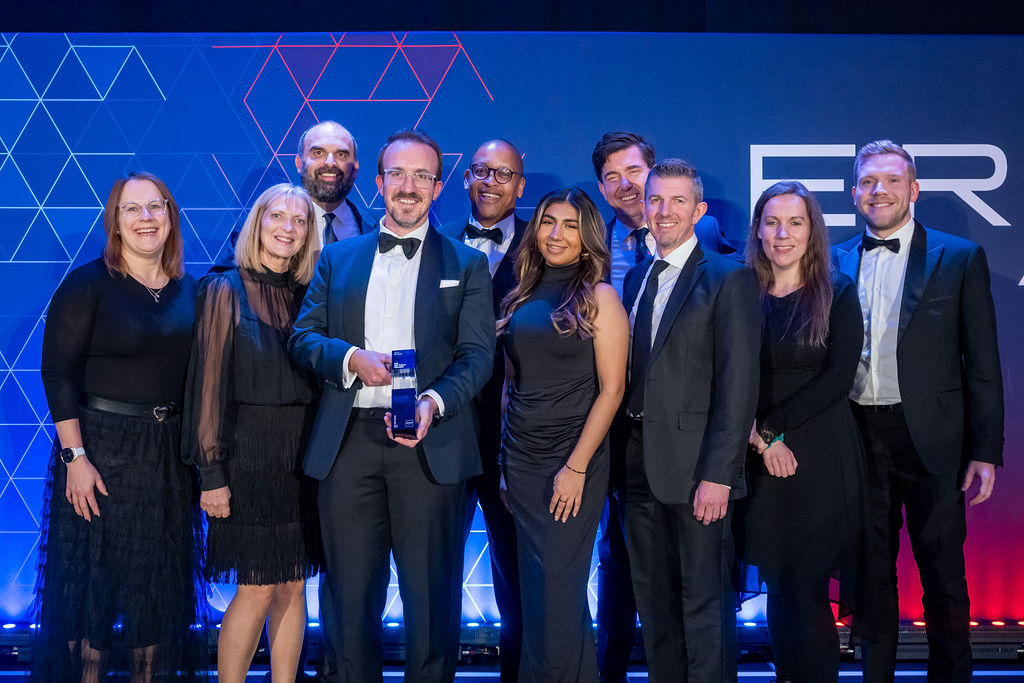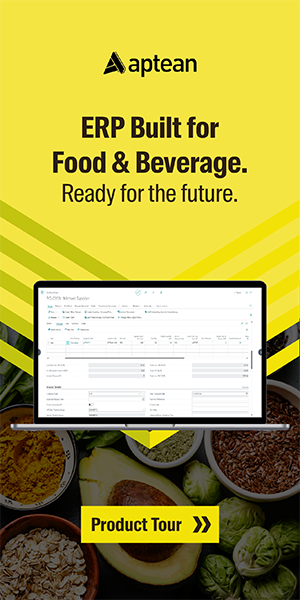While Governance, Risk, and Compliance (GRC) is often seen as a stuffy and complex space, its constantly demanding nature is one that is prompting AI innovation in the ERP space. Take Wolters Kluwer, which is progressively integrating Artificial Intelligence across its range of products to enhance GRC capabilities, reflecting the information services leader’s growing commitment to innovation. From legal research platforms to banking compliance tools, Wolters Kluwer’s AI-driven solutions potentially offer efficiency, accuracy, and cutting-edge functionality.
In Spring 2024, Wolters Kluwer’s Legal & Regulatory division unveiled new AI-enhanced capabilities for its Legisway platform, an all-in-one SaaS legal information and contract management tool for corporate legal departments. The introduction of advanced natural language processing (NLP) allows users to query contracts effortlessly, boosting the speed and accuracy of contract reviews. This functionality is part of a broader effort to streamline corporate legal work, reduce risk, and enhance collaboration, particularly through the newly introduced Legal Services Portal which simplifies the management of legal support requests.
Later in the year, the company introduced the OneSumX Reg Manager, a powerful AI solution designed for U.S. community banks and credit unions. This tool provides a dedicated workflow to help these institutions manage the complex regulatory landscape. By integrating AI with Wolters Kluwer’s expansive compliance expertise, it automates the monitoring of regulatory changes and ensures that community banks and credit unions can stay ahead of evolving requirements, thus reducing the risk of non-compliance.
The Dutch compliance leader then updated CCH Tagetik, its Corporate Performance Management tool designed to seamlessly integrate with a wide array of ERPs, Customer Relationship Management (CRM) systems, Microsoft Office, and various data formats, offering connectors for SAP, Microsoft, and Qlik.
May’s advancements in the CCH Tagetik Intelligent Platform show how cutting-edge technologies are predicted to drive a new era of efficiency, accuracy, and strategic capability within the Office of the CFO. Designed to empower finance professionals, the platform unlocks unparalleled potential by democratizing access to meaningful financial data, accelerating decision-making, and providing powerful tools for managing massive datasets with unprecedented speed.
Central to this transformation is the introduction of generative AI functionality, such as the innovative “Ask AI” feature. By enabling real-time, visual responses to natural language queries—whether via text or voice—finance teams can likely engage with their systems more intuitively than ever before. Wolters Kluwer estimates that these capabilities will significantly enhance productivity, allowing professionals to dedicate more resources to high-value activities such as analytics, strategic decision support, and innovation.
Data governance and accuracy have also seen a marked improvement through AI Automapping, which streamlines data collection and ensures compliance, and AI Anomaly Detection, which safeguards data integrity by flagging unusual or abnormal patterns. Additionally, the platform’s Intelligent Disclosure functionality dynamically links financial, non-financial, and ESG data to ensure that reports, filings, and presentations remain accurate and up to date. These capabilities reflect a broader trend across industries, where automation is replacing manual, error-prone processes with tools that offer greater speed, consistency, and reliability.
AI’s role in financial analysis and reporting is equally transformative. The CCH Tagetik Intelligent Platform integrates sophisticated analytics and visualization tools, enabling self-service reporting and dynamic dashboarding. Features like AI Driver-Based Analysis allow finance teams to quickly identify key business drivers and areas of exponential growth, while Predictive Intelligence and Transaction Matching improve forecasting and decision-making processes. These tools empower organizations to not only react to changes but to anticipate them, fostering a forward-looking approach to risk and compliance.
Wolters Kluwer brings AI to Legal, Lending, and Auditing
In September 2024, Wolters Kluwer launched the VitalLaw AI feature, a considerable enhancement to its legal research platform. This AI-driven functionality enhances legal professionals’ productivity by offering intuitive, safe, and reliable AI-generated answers. The platform offers dynamic document summarization, executive summaries, checklists, and simplified legal terminology, enabling professionals to communicate complex legal matters more effectively. Furthermore, the inclusion of “editor-in-the-loop” technology ensures accuracy and relevance in AI-generated responses with human assistance, promoting continuous improvement based on user feedback.
By December, Wolters Kluwer had further advanced its AI capabilities with updates to its TeamMate+ audit management platform. The introduction of Multi-Year Audit Planning and a Business Rules Engine allows audit teams to automate planning processes and ensure compliance with industry standards. These innovations enable audit professionals to manage audits across multiple periods, ensuring regulatory compliance with greater efficiency, while maintaining data accuracy and integrity.
Most recently, Wolters Kluwer extended its AI applications to the lending sector with the launch of iLien Borrower Analytics. This AI-powered solution simplifies the lien search and due diligence process for lenders by providing actionable intelligence reports. By automating the analysis of Uniform Commercial Code (UCC) filings, the solution helps lenders evaluate collateral assets, making quicker and more informed lending decisions while reducing manual review time.
With AI now embedded in approximately 50% of its digital revenues, Wolters Kluwer’s strategic push for AI in GRC and legal solutions showcases its commitment to reshaping industries. AI and automation are redefining the governance, risk, and compliance space, making processes more intelligent, efficient, and adaptive. Tools now offer the ability to proactively monitor regulations, manage internal controls, and simplify intricate workflows.
Wolters Kluwer aims to stand at the forefront of this transformation, integrating its decades of expertise with cutting-edge AI technology to help organizations navigate the complexities of compliance, reduce risk, and drive innovation in GRC management. Its innovations not only aim to streamline complex processes but also empower legal, compliance, and audit professionals with the tools to drive better outcomes, reduce risk, and remain at the forefront of their respective fields. The company’s deep integration of AI across diverse platforms highlights its role as a leader in the development of intelligent, scalable solutions for professionals worldwide. This evolution signals a broader shift across industries—one where automation and AI are not just tools but essential components of strategic success in an increasingly regulated world.
What this means for ERP Insiders
Revolutionizing Regulatory Monitoring and Risk Mitigation: Recent Wellesley Information Services research in The CIO’s Transformation Report Card showed that automation and standardization of business processes is the top transformation project (52%) for CIOs today. AI and automation are fundamentally changing how organizations approach regulatory compliance by automating the tracking, mapping, and implementation of updates across jurisdictions. This shift reduces reliance on manual processes, allowing for faster and more accurate responses to regulatory changes. Wolters Kluwer’s innovative solutions, such as those with automated regulatory feeds and AI-enabled content libraries, exemplify this transformation. By streamlining how compliance risks are identified and addressed, organizations can adopt a more proactive and efficient approach to managing regulatory complexity. Wolters Kluwer’s CCH Tagetik Intelligent Platform exemplifies this by embedding AI, ensuring more efficient processes, better strategic alignment, and enhanced transparency in both financial and regulatory reporting using data integration from ERP platforms from SAP and Microsoft.
Streamlining Workflows and Driving Efficiency: Across the GRC landscape, AI is enhancing productivity by simplifying traditionally time-intensive processes such as contract management, audits, and compliance reporting. Automated workflows, natural language processing, and advanced collaboration tools are eliminating bottlenecks and enabling teams to work smarter. Wolters Kluwer’s platforms, including VitalLaw AI and Legisway, demonstrate how these technologies are improving efficiency by providing tools that generate summaries, automate audit planning, and enable seamless collaboration. These advancements are reducing operational burdens and allowing organizations to focus on strategic priorities.
Empowering Decision-Making with AI-Enhanced Insights: AI is empowering organizations to make better, faster decisions by delivering actionable insights from complex legal, compliance, and risk data. The ability to summarize documents, analyze borrower data, and generate checklists ensures greater clarity and accuracy. Wolters Kluwer’s AI-driven tools, such as iLien Borrower Analytics, highlight how automation is not just streamlining processes but also enhancing decision-making. With these innovations, organizations can confidently address risks, communicate complex information, and implement strategies aligned with compliance and business goals.






